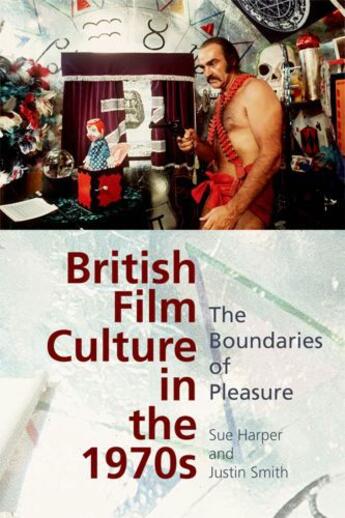-
Nombre de pages : (-)
-
Collection :
(-)
-
Genre :
(-)
-
Thème :
Non attribué
-
Prix littéraire(s) :
(-)
Résumé:
This volume draws a map of British film culture in the 1970s and provides a wide-ranging history of the period. It examines the cross-cultural relationship between British cinema and other media, including popular music and television. The analysis covers mainstream and experimental film... Voir plus
This volume draws a map of British film culture in the 1970s and provides a wide-ranging history of the period. It examines the cross-cultural relationship between British cinema and other media, including popular music and television. The analysis covers mainstream and experimental film cultures, identifying their production contexts and the economic, legislative and censorship constraints on British cinema throughout the decade.The essays in Part I contextualise the study and illustrate the diversity of 1970s moving image culture. In Part II, Sue Harper and Justin Smith examine how gender relations and social space were addressed in film. They show how a shared visual manner and performance style characterises this fragmented cinema, and how irony and anxiety suffuse the whole film culture. This volume charts the shifting boundaries of permission in 1970s film culture and changes in audience taste. This book is the culmination of an AHRC-funded project at the University of Portsmouth, For more information about 1970s British Cinema, Film and Video: Mainstream and Counter-Culture (2006-2009) please visit the project website at www.1970sproject.co.uk.
Donner votre avis














